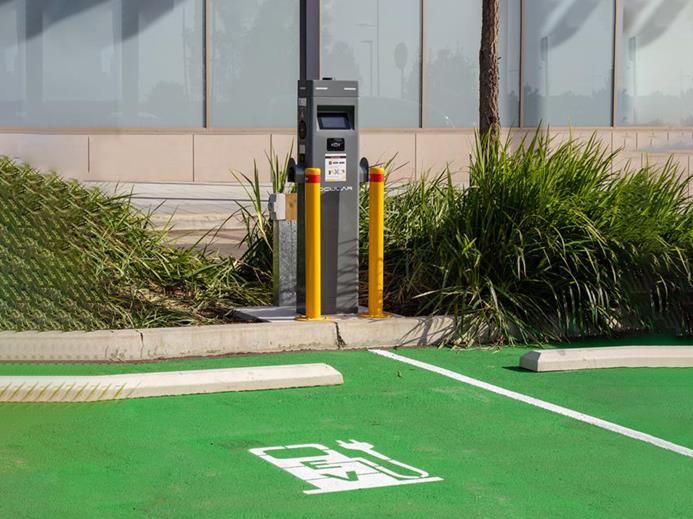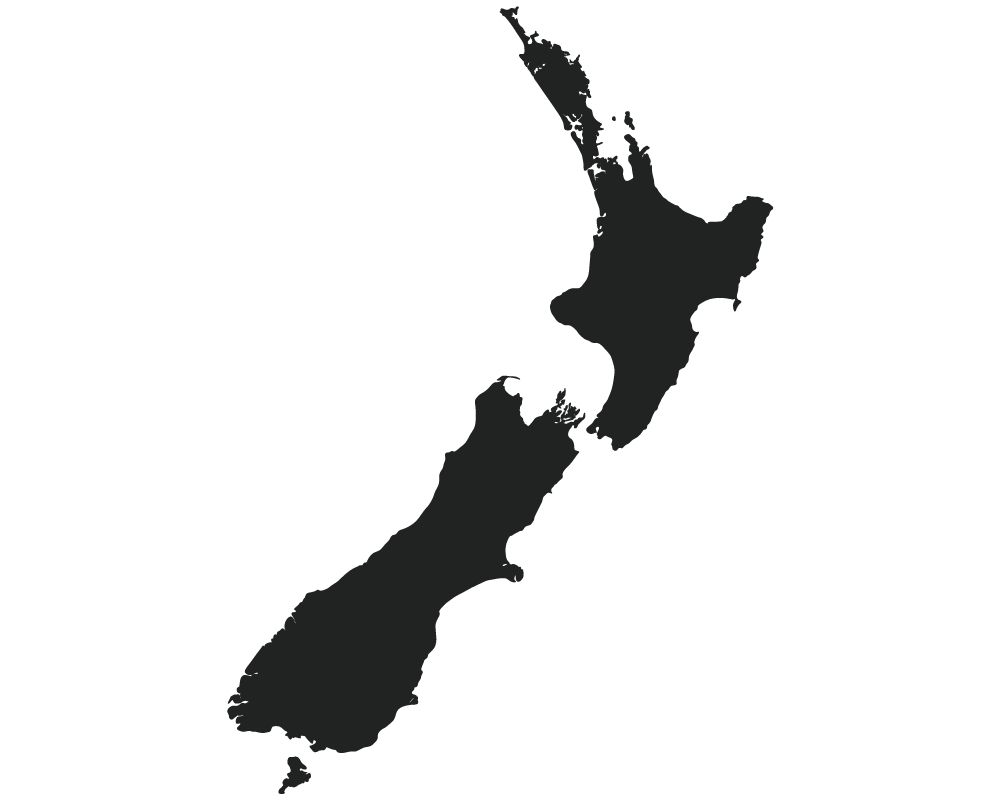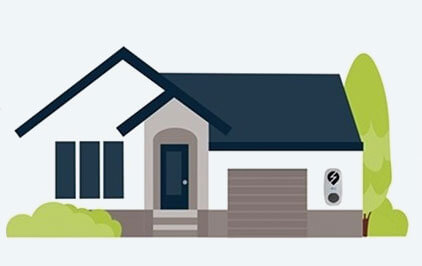Find the right charger
Tell us about your car and home to see recommendations.
EVSE New Zealand has a New Zealand-wide network of certified electricians who are experienced in installing EV chargers in businesses and homes. Whether you’ve just purchased a new electric car or plan on purchasing one soon, here are a few helpful tips to prepare for your new EV home or office charging station.
When installing a charging station for your electric car, consideration must be given to various safety criteria. Our checklist includes all the key points you need to remember when installing your charging station. The information provided on this website is a guide, all installations should be conducted according to the manufacturer’s recommendation and the various regulations across New Zealand. All EV equipment should be installed by a licensed and qualified electrician.
Need a convenient place to charge your EV on a long journey? The answer to this common concern lies in the widespread adoption of EV Charging Stations. These stations support the growing number of electric vehicles on our roads.
Our EV Charging Stations in New Zealand provide an accessible way for EV owners to keep their vehicles charged and ready to go. With strategically placed stations, drivers can easily find a charging point at home, work or on the road.
This EV Charging Station Installation Guide offers step-by-step instructions to ensure a smooth and secure setup. Benefit from expert advice on choosing the right equipment, understanding safety standards, and optimising your charging experience.


A licensed and certified electrician will need to perform your electric car charger installation. EVSE New Zealand does have a network of trusted installers, but conversely, you may opt to use your own electrician. Before they come for a site assessment and installation, determine where you intend to park your EV while it’s charging. Ideally, your EV Charging Station should be no more than 3 meters from the car’s charging port on your car. In terms of charging a vehicle in the future, we are seeing newer generation EVs coming out with faster onboard capacity utilizing the more powerful 3 phase connections. If the building has access to 3 phase power then we would highly recommend that this is made available to your home with an outlet in your garage. If not, then choose a single-phase connection with a capacity of 32Amp to give you a power available of 7.4kW. Your installer will determine what your home has and if any updates are needed.
Our EV chargers come with configurable outputs so they will work on both single and 3-phase connections.
Please place the outlet of the EV Charging Stations close to the garage door or area where you intend to charge the car to give you flexibility so that the cable can charge the car when it’s parked inside or outside and remember to give space for the charger to be mounted on the wall.
Your electrician can provide an on-site quote and can begin installing your EV charger at your Home or Office. Regardless of who you choose to install your EV Charger in New Zealand, make sure they are a licensed electrician and provide you with a quote before beginning any work. Please remember cable length will determine how flexible your parking options are. Conversely, the cable becomes heavier. Generally 3kg for 5m cable & 6kg for 10 m cable
No additional appliances should be connected to the cable leading from the fuse box to the charging station. Further appliances would include lights, washing machines & general appliances. The utilization factor will be systematically estimated to 1, as it takes a long time to completely load the batteries of an electric vehicle. The dedicated circuit feeding the charging station or wall box will be required to follow the AS3000 standards. The connected load of the charging station must be 100% respected.
If cables are too thin, they become hot, and there is a danger of the cables burning. If the charging current is 16A or above we recommend a cable with a minimum cross-section area of 2.5 mm2 or more, allowing the vehicle to be charged with a charging power of 11-22 kW. For a three-phase charger, a 5-conductor supply cable must be used. The inner diameter of the cable depends on factors such as cable length, potential drop, environmental temperature, and type of installation. It is, therefore, best to get a qualified electrician to determine what diameter cable you require. We recommend preparing cables for a three-phase connection (when possible), in order to be future-proof your development. The electric cars of the future will have quicker charging speeds and larger battery capacities.
The residual current device (RCD) is there to avoid electric shocks. An RCD balances the electric current in the live and neutral wires to/from the appliance, in the electric car. If these currents are no longer balanced, for example, if a residual current flows through the bodywork of the car or the driver to the floor, the RCD is triggered and breaks the circuit. To ensure that this is the case, where an RCD is not already integrated into the charging station, each charging station must be fitted with its own individual RCD. For protection, there is a diversity factor of 1.0, which means that each circuit must be individually protected.
– A Type A RCD is required for each EVSE charging station. This standard RCD protection switch, installed by qualified electricians, registers only specific AC fault currents.
– Some electric vehicles may generate smooth DC fault currents during charging. If this is possible, a suitable DC residual current protection must be installed.
– Type B RCD is sensitive to all currents, detecting AC and DC residual currents, and is highly recommended for EVSE charging station installation.
– Many chargers in the EVSE range come with a built-in Type A or Type B RCD for added safety.D42
The circuit breaker ensures that the circuit is broken if too much electricity flows through the cable. This ensures that damages caused to the cables as a result of heating up can be avoided. As with the RCD, an extra circuit breaker is required for the charging station circuit.
Manufacturers of our EV charging stations recommend circuit breakers with the tripping characteristic C.
The circuit breaker must be in alignment with the nominal current, in the case of the required charging power. It presents a potential safety hazard, meaning that the EV charging installation should only be carried out by a qualified electrician. They are responsible for ensuring that all existing standards and installation regulations have been observed.
The nominal current is the current absorbed by electrical devices. The nominal current of the circuit breaker you have chosen must never fall below the reading on the charging station’s label.
If you want more information on EV Charging Stations in New Zealand, get in touch with us today.
What does this include?
Customer is contacted within 24 hours of enquiry by EVSE to book installation.
Install your EV Charger using our low fixed price installation package. Backed by our quality guarantee.

Up to 15 metre run from the electricity meter & home EV charger.
Industry leading 2-year replacement warranty.
EVSE believes in a green sustainable future by delivering the latest EV Charging technology at the lowest price. All our work is certified and guaranteed with the backing of global brands.
Our team of experts can provide specialist EVSE advice and are available to answer any of your questions over the phone


"*" indicates required fields

Tell us about your car and home to see recommendations.

Stocking the best Electric Car products from the World’s leading brands.

All of our EVSE products are compliant with New Zealand & International standards.